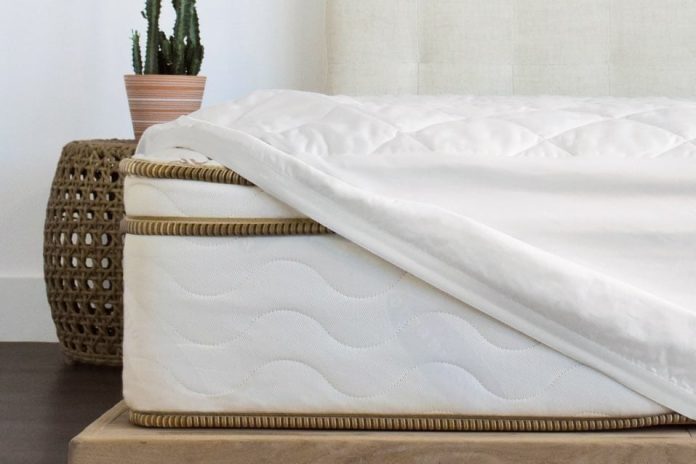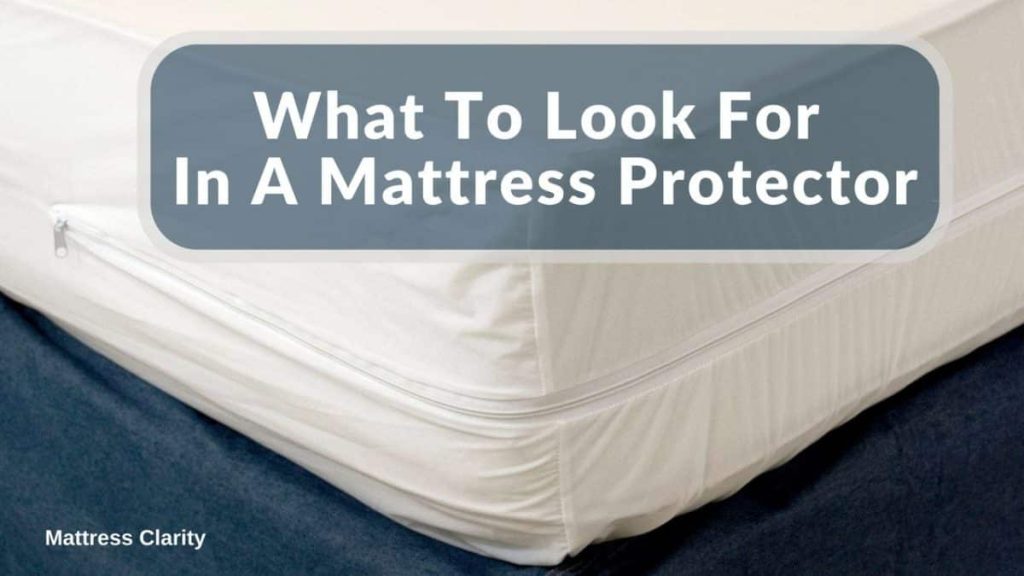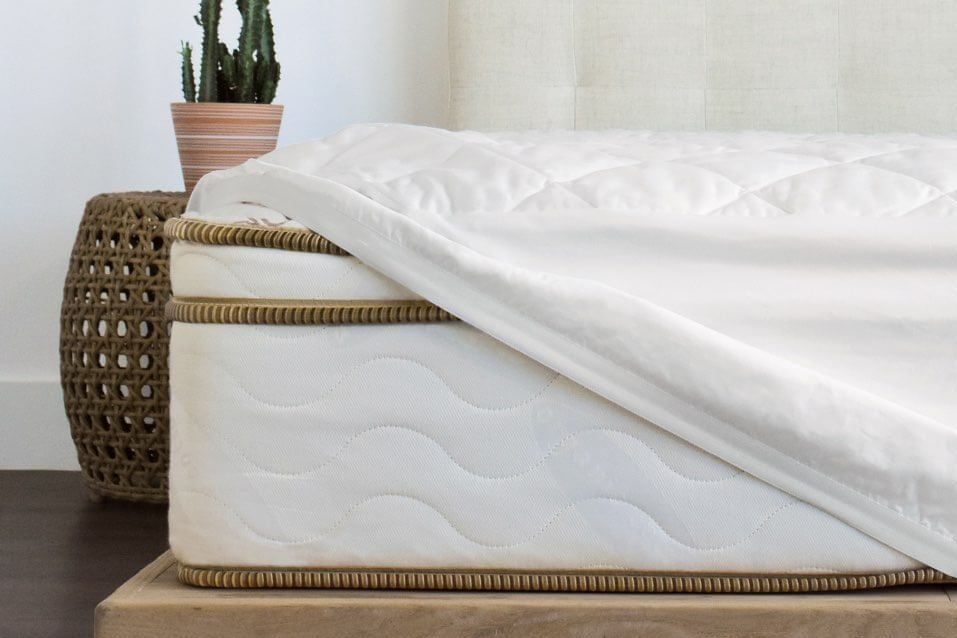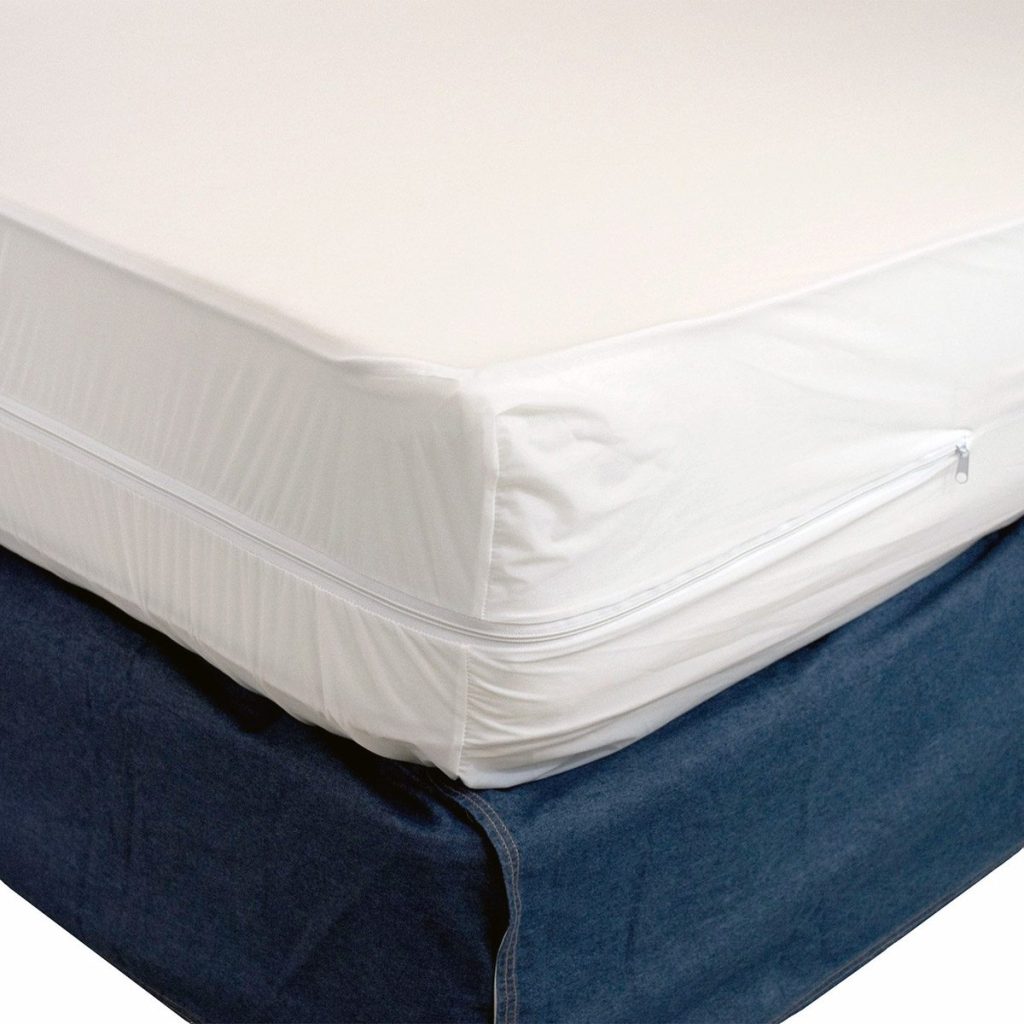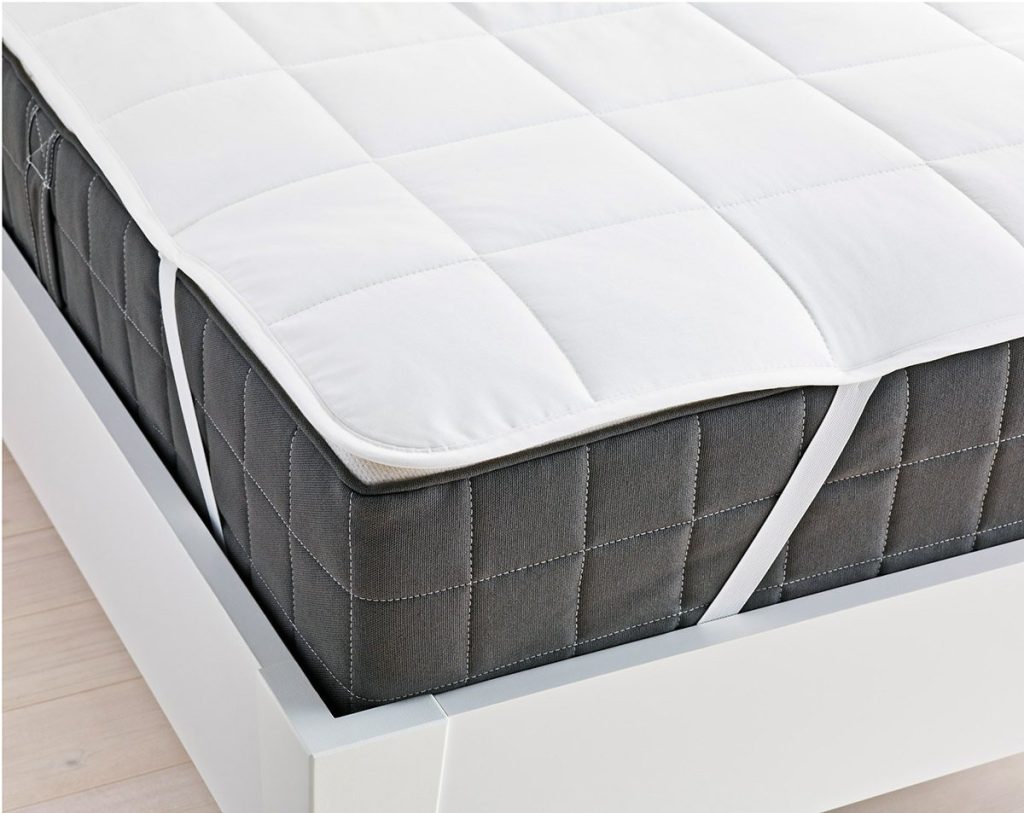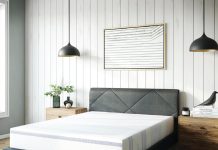In the quest for a restful night’s sleep, we often overlook the importance of a quality mattress protector.
But fear not, dear reader, for we’ve embarked on a journey to uncover the key factors to consider when purchasing this seemingly mundane household item.
From safeguarding against spills and stains to preventing allergens from infiltrating your haven of comfort, we’ll help you navigate the vast sea of options and find the perfect mattress protector to suit your needs.
So, grab a cozy seat and prepare to discover the secrets to enhancing your sleep sanctuary.
This image is the property of www.mattressclarity.com.
Review contents
Size and Fit
Choosing the Correct Size
When choosing the correct size for a mattress protector, it is essential to measure your mattress accurately. Mattress protectors come in sizes ranging from twin to California king, so you want to ensure a snug fit. Measure your mattress’s width, length, and depth, and refer to the manufacturer’s sizing chart to ensure you select the correct size.
Elasticity and Deep Pockets
A mattress protector with good elasticity and deep pockets is crucial for a secure fit on the mattress. Look for a protector with elastic bands or stretchy corners that can quickly go around the corners of your mattress. Deep pockets are ideal because they can accommodate thick mattresses or those with mattress toppers without slipping or coming loose.
Secure Fit on the Mattress
A mattress protector should provide a secure fit on the mattress to prevent it from shifting or bunching up during the night. This ensures a comfortable sleep and maintains the protector’s effectiveness. Check for user reviews or product descriptions that mention the secure fit feature to ensure you choose a protector that stays in place throughout the night.
Material
Waterproof or Water-Resistant
One of the primary purposes of a mattress protector is to protect your mattress from spills, accidents, and stains. It is essential to consider whether you need a waterproof or water-resistant protector. Waterproof protectors provide a complete barrier against any liquid penetration, while water-resistant ones repel liquid to some extent but may not completely protect against spills. Choose the option that aligns with your needs and preferences.
Breathability and Comfort
While protecting your mattress, it is equally important to prioritize your comfort. Look for a mattress protector from breathable materials, such as cotton or bamboo, to ensure proper airflow and ventilation. This allows heat and moisture to escape, keeping you cool and comfortable throughout the night.
Hypoallergenic Properties
If you suffer from allergies or have sensitivities, a mattress protector with hypoallergenic properties is necessary. These protectors are designed to defend against allergens like dust mites, mold, and bacteria. Look for certifications or product descriptions that specify hypoallergenic properties to ensure a healthier sleeping environment.
Ease of Cleaning
A mattress protector should be easy to clean and maintain. Look for one that is machine washable and can withstand frequent washing without losing its protective properties.
Additionally, some protectors have stain-resistant features, making it easier to remove any spills or accidents that may occur. Consider these factors when choosing a mattress protector to ensure effortless cleaning and maintenance.
Protection Level
Degree of Waterproofing
The degree of waterproofing in a mattress protector determines how effectively it can guard against liquid penetration. Some protectors offer a basic level of water resistance, ideal for protecting against accidental spills, sweat, or pet accidents. Others have advanced waterproofing technology that can protect against heavy spills and even bedwetting. Consider your specific needs and the potential risks when selecting a protector with the appropriate degree of waterproofing.
Allergen Barrier
An allergen barrier is important to consider if you suffer from allergies or asthma. Look for a mattress protector that explicitly states its ability to create a barrier against allergens such as dust mites, pet dander, and pollen, preventing them from settling into your mattress. This can significantly reduce allergy symptoms and promote a healthier sleep environment.
Bed Bug and Dust Mite Protection
If your primary concern is protecting your mattress against bed bugs or dust mites, choose a mattress protector that offers specific protection against these pests. Some protectors are designed to prevent bed bugs from entering or escaping your mattress, while others have microscopic pores that ensure dust mites cannot penetrate the protector. Consider these features if you live in an area prone to bed bugs or particularly sensitive to dust mites.
Durability
Quality of Construction
The durability of a mattress protector is essential to ensure it can withstand frequent use and washing. Look for one made with high-quality construction, such as double-stitched seams and reinforced corners. This ensures that the protector remains intact even with regular movement and stretching.
Strength of Materials
A mattress protector should be made from solid, durable materials that can withstand wear and tear. Materials like polyester or cotton blends are commonly used due to their strength and longevity. Consider the overall strength and durability of the materials used in the protector before purchasing.
Warranty
A manufacturer’s warranty is a testament to their confidence in the product’s durability. Look for mattress protectors with a warranty, as they provide peace of mind and assurance that the product will stand the test of time.
Pay attention to the warranty duration and any conditions or limitations that may apply.
This image is the property of www.familyhandyman.com.
Ease of Use
Installation and Removal
A mattress protector should be easy to install and remove, making cleaning and maintenance much more straightforward. Look for protectors with clear instructions and features like elastic bands, stretchy corners, or zipper closures that make it easy to put on and take off.
Smoothness and Noiselessness
A smooth mattress protector adds to the overall comfort of your sleep. Choose a protector that doesn’t create any noise or crinkle when you move, ensuring an undisturbed sleep. Product descriptions or customer reviews may provide insights into the noise level, so consider this factor when selecting.
Portability and Storage
If you need to travel frequently or have limited storage space, consider a mattress protector’s portability and storage options. Look for protectors that are lightweight, easy to roll or fold, and come with a travel-friendly storage bag. This allows you to conveniently bring your protector along on trips or store it when not in use.
Comfort
Softness and Breathability
A comfortable mattress protector should provide a soft and cozy surface for you to sleep on. Look for protectors made from cotton or bamboo that feel gentle against your skin. Additionally, ensure the protector is breathable to allow air circulation, preventing heat buildup and promoting a comfortable sleep environment.
Temperature Regulation
For those who tend to sleep hot or cold, temperature regulation is crucial in a mattress protector. Some protectors are designed with cooling properties to wick away heat and moisture, keeping you cool throughout the night. If you prefer a warmer sleep experience, look for protectors that provide additional insulation and heat retention.
Noise Reduction
A noisy mattress protector can lead to a disrupted sleep experience. Look for protectors advertised as noiseless or silent to ensure a quiet night’s sleep. Customer reviews can provide valuable insight into whether or not a protector produces any noise when used.
Extra Padding
If you desire extra cushioning for your mattress, consider a protector with additional padding. Some protectors come with built-in quilted or padded layers that enhance the overall comfort of your sleep surface. This can be particularly beneficial for those with older or firmer mattresses seeking a softer feel.
This image is the property of www.mattressclarity.com.
Versatility
Compatibility with Mattress Types
A mattress protector should be compatible with your specific mattress type. Whether you have a memory foam, latex, or hybrid mattress, ensure the protector is designed to accommodate your mattress’s unique characteristics. Pay attention to product descriptions or consult with the manufacturer to confirm compatibility.
Suitability for Adjustable Beds
If you have an adjustable bed, choosing a mattress protector that can adapt to the bed’s movements without compromising its protective qualities is crucial. Look for protectors explicitly designed for adjustable beds or those that mention their flexibility and ability to stretch or move with the mattress.
Compatibility with Topper or Pillow-Top
If you have a mattress topper or a pillow-top mattress, ensure the protector is deep enough to cover the mattress and the additional cushioning layer. Look for protectors with deep pockets and stretchy corners to accommodate the extra height and maintain a secure fit.
Cost
Budget Considerations
Consider your budget when choosing a mattress protector. Prices vary significantly depending on the brand, materials, and additional features. Set a budget range that aligns with your needs and explore options within that range. Remember that a higher price tag does not always guarantee better quality or performance.
Value for Money
While budget is necessary, the value for money is equally crucial. Consider the overall features and benefits the mattress protector offers and weigh them against the price tag. Look for protectors that offer a good balance between quality, durability, and cost-effectiveness.
Long-Term Investment
Investing in a high-quality mattress protector can be seen as a long-term investment. A durable protector with excellent protective properties can extend the lifespan of your mattress, potentially saving you money in the long run.
Consider the value of protecting your investment in a mattress when evaluating the cost of a protector.
This image is the property of cdn.shopify.com.
Brand Reputation
Researching the Brand
Before purchasing a mattress protector, take some time to research the brand behind it. Look for well-established and reputable manufacturers known for producing high-quality sleep products. Read about their history, values, and commitment to customer satisfaction. This can give you more confidence in the product you are considering.
Customer Reviews and Ratings
Customer reviews and ratings provide valuable insights into a mattress protector’s actual performance and customer satisfaction. Read both positive and negative reviews to get a balanced perspective. Pay attention to recurring themes or specific features mentioned in the reviews to determine if the protector fits your needs.
Warranty and Customer Support
Consider the warranty and customer support offered by the brand. A robust warranty covers potential defects and demonstrates the manufacturer’s confidence in their product. Additionally, look for brands that provide excellent customer support and readily address any concerns or issues you may encounter with your mattress protector.
Additional Features
Cooling Technology
If you sleep hot, consider a mattress protector with cooling technology. Some protectors incorporate innovative materials or technology that actively wicks away heat and moisture from your body, keeping you cool and comfortable throughout the night.
Noise Reduction
Some mattress protectors are specifically designed to reduce noise or eliminate it. If you are a light sleeper or easily disturbed, look for a protector that assures noiseless sleep, allowing you to enjoy a peaceful night’s rest.
Eco-Friendly Materials
For those who prioritize sustainability, there are mattress protectors available that are made from eco-friendly materials. Look for certified organic protectors, made from renewable resources, or free from harmful chemicals. These options provide peace of mind, knowing that your sleep accessories are environmentally conscious.
Antimicrobial Properties
If you are concerned about keeping your sleeping environment free from harmful bacteria and allergens, look for mattress protectors with antimicrobial properties.
These protectors are treated with antimicrobial agents that inhibit the growth of bacteria, mold, and other microorganisms, reducing the risk of allergies or respiratory issues.
In conclusion, when buying a mattress protector, it is essential to consider size and fit, material, protection level, durability, ease of use, comfort, versatility, cost, brand reputation, and additional features.
By carefully evaluating each of these factors, you can make an informed decision and select a mattress protector that provides optimum protection for your mattress and enhances your comfort and overall sleep experience.
This image is the property of www.mattressclarity.com.

